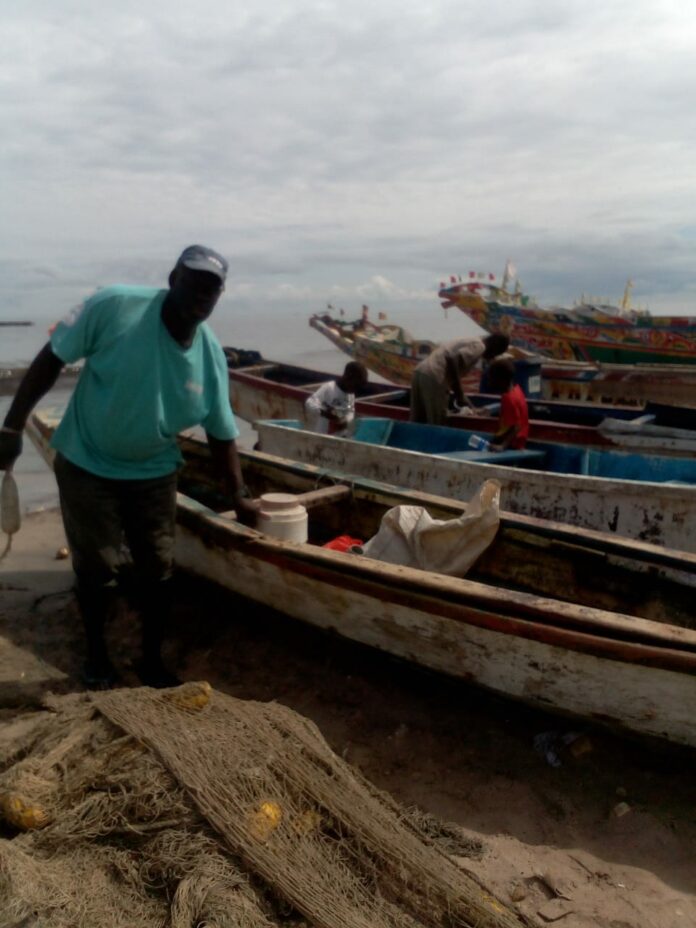By: Michaella Faith Wright
For many fishermen in The Gambia, the rainy season brings a host of challenges, from rougher seas to stronger river currents. These harsh conditions not only make fishing more hazardous but also limit the number of days they can safely venture out. “During the rainy season, the waves are higher and more unpredictable,” said Lamin Sanyang, a fisherman from Bakau. “It can be dangerous, and sometimes we have to stay ashore for days, which affects our income.”
The reduction in fishing days and the increased difficulty in catching fish directly result in lower incomes for fishermen and their families. Many fishing communities in The Gambia rely heavily on daily catches to meet their basic needs. “When the fish are scarce, our earnings drop,” said Fatoumatta Jawara, a fish seller in Bakau Market. “It affects not just the fishermen but also those of us who depend on buying and selling the fish.”
Additionally, the rainy season often leads to higher prices for fish in the markets due to the decreased supply. This price hike strains household budgets, especially for low-income families who rely on fish as a primary source of protein.
In an interview with Allieu Saine, the president of the fishermen in Bakau, he shared insights from his 30 years of experience. “I have been into fishing for over 30 years, following in the footsteps of my parents. Fishing is our culture and livelihood,” he said. Saine highlighted several challenges they face during the rainy season, including the destructiveness of the rains, competition from industrial fishing, and the high cost of petrol. “Petrol is very expensive now, and it significantly affects our operations,” he added.
Saine also spoke about the successes and community benefits of his career in fishing. “I have been able to build a house and send three of my children to the University of The Gambia. I can support my community and provide for my family,” he said. His advice to young people is to work hard and think of their community and families.
Preserving the ocean is a key focus for these communities. “We clean the ocean, stop throwing waste and oils into the river, and educate others to do the same,” Saine explained. “If people stop polluting, our sea can come back to normal.”
Assan Njie, another seasoned fisherman from Bakau Wharf with over 45 years of experience, echoed similar sentiments. “The water is rougher now, and our nets often get damaged. We face many challenges, but I will not give up despite getting old,” he said. Njie urged the government to do more to support the fishing community.




